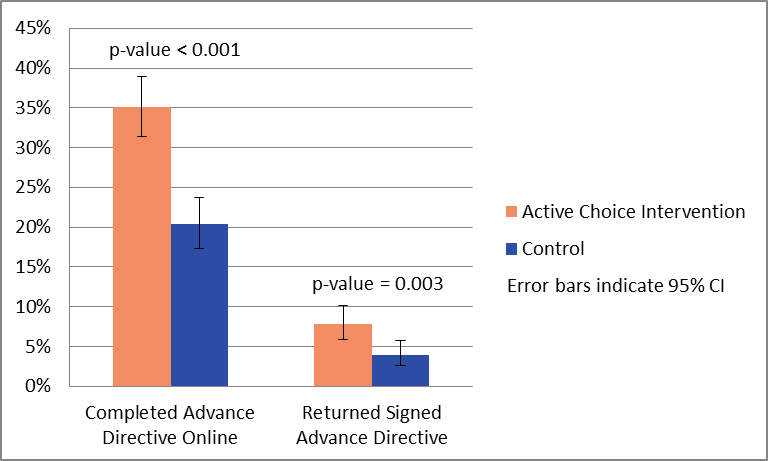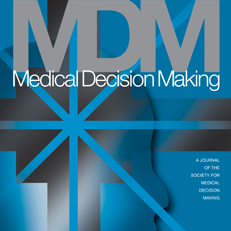The Impact of Active Choice on Completion Rates of...

Completing an advance directive (AD) can help inform providers, family members, and surrogates about a patient’s preferences for end-of-life care, reducing the decision-making burden for designated proxies in the event of an adverse health situation. Yet despite the benefits of completing an AD, many patients neglect to enact one. This study is testing an approach whereby subjects are required to complete either an AD or a form declining to do so. This does not force a particular outcome, but simply requires patients to make a decision, thereby countering the procrastination and inertia that often prevent people from doing things they actually want to do.
Sponsors
-
Otto Haas Charitable Trust




